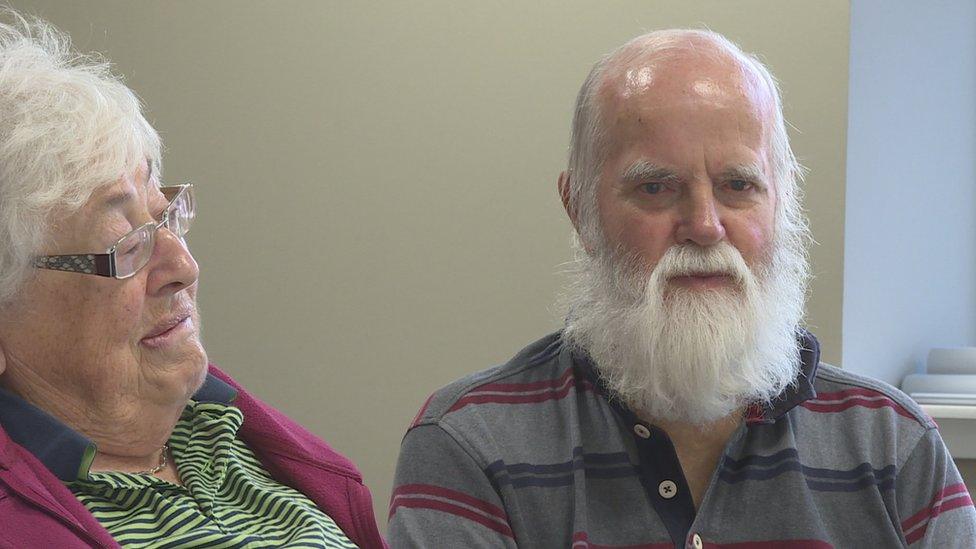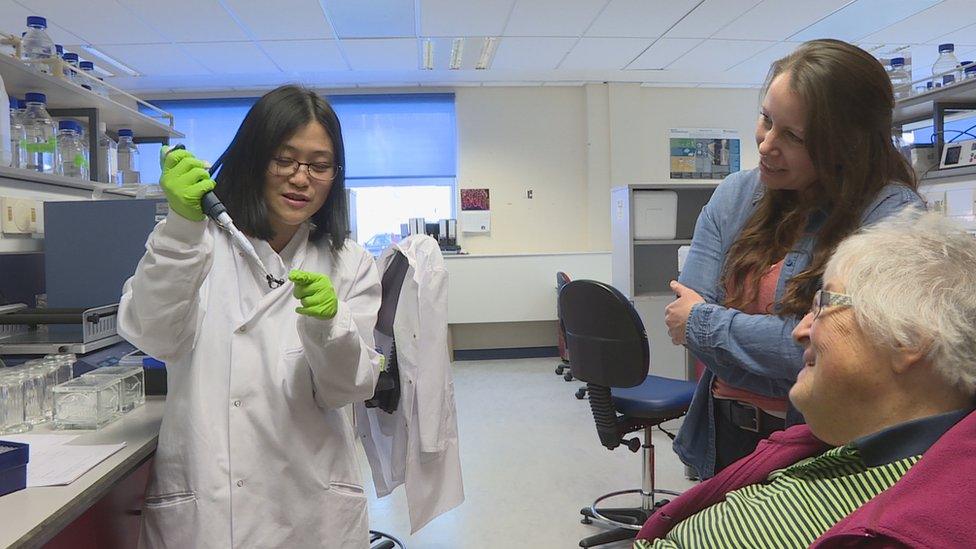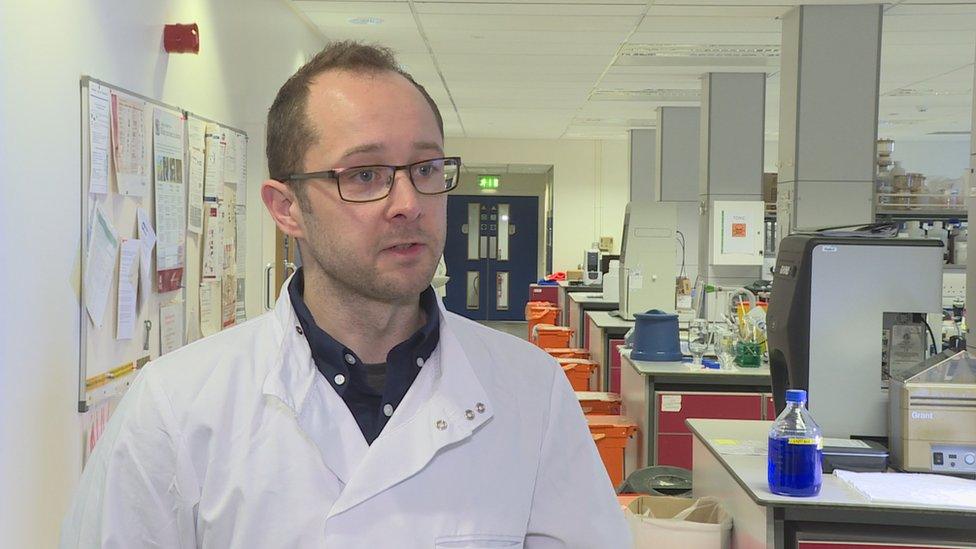'Dementia buddies' fight disease together in Scotland
- Published
The "buddy scheme" pairs University of Edinburgh researchers with people who are living with the disease
A pioneering project to investigate dementia has been set up in Scotland. The "buddy scheme" pairs university researchers with people who are living with the disease so they can learn from each other.
Doreen Gordon is one of those taking part. She lives with dementia with the support of her husband Keith and a team of helpers.
On the day I meet them the pair are visiting neuroscience laboratories run by Edinburgh University.
These are housed in the Chancellor's Building, part of the Edinburgh Royal Infirmary complex on the south side of the capital.
Doreen is visiting, not as a patient and certainly not as a guinea pig. She is a research buddy.
Her partner in the scheme is brain scientist Dr Szu-Han Wang. Over coffee and biscuits, she talks Doreen and Keith through the processes behind Alzheimer's, the most common form of dementia.
It has been creeping up on Doreen for some time, affecting her memory in particular.

Doreen Gordon and her husband Keith are helping scientists involved in the project
Keith says he has to be quick off the mark when the postman arrives in case Doreen puts the mail away somewhere safe but then cannot remember where that was.
Szu-Han explains about the amyloid plaques and tau proteins which have been the focus of much recent research. These are linked to a breakdown in communication between brain cells.
The exact process remains unknown. We all have amyloid plaques in our brains and some people can have large numbers and yet not develop the disease.

Dr Wang hopes work with genetically-modified mice can help people living with dementia
Dr Wang says that by working with genetically-modified mice they can mimic the process in humans.
"We start to see the brain change, and as a consequence of that we also see function change such as memory loss," he says.
It sparks an immediate response in Doreen, who recognises the significance "for someone like me, who has been told that they have this problem".
Despite her memory issues, Doreen is engaging enthusiastically. She did a biology degree at the university before a long career as a teacher.
The pilot was initially funded by an NHS Lothian Accord bursary. More funding has come from the Alzheimer's Society.
It is headed by Dr Chris Henstridge of the university's Centre for Discovery Brain Sciences.
He says it is bringing together two groups who do not normally communicate.
"They are both groups of people who have very specific views on what dementia is because of the way they experience it," he says.
"One group of people are people who are living with dementia in the community.
"The other group of people are researchers like myself who spend all their time at the bench trying to understand the disease.
"And we've got a very, I would say, clinical understanding of what dementia really is.
"We read about it all the time but we don't really get the opportunity to experience and interact with people who live with the disease on a daily basis."
Clinical trials
It is a multi-disciplinary approach, and not just between neuroscientists and people living with dementia.
The scheme's co-ordinator is a researcher into human behaviour - social anthropologist Lilian Kennedy.
She says: "People who are living with the disease and the people who care for them actually have a vast amount of expertise about what dementia is and what's needed to manage it day to day."
She says she used to co-ordinate clinical trials, "but what I found over the course of my years doing that is our participants who were coming in - and their carers - had so much knowledge that some clinical processes weren't able to capture."

Dr Henstridge says the scheme is bringing together two groups who do not normally communicate
Doreen is not under the microscope here. Instead, she is looking through one with Dr Wang at human brain cells.
Szu-Han also shows her tiny sections of mouse brains showing potential sites for drug treatment.
Despite her memory issues, the significance of what she has learned has not slipped her mind.
She says: "Doing research into Alzheimer's and memory and all these kind of things. Explaining more about it."
For researchers like Dr Henstridge, it's providing valuable insights into dementia. But what is in it for the people who are living with it?
"What we really want to do is give these people some hope," he says, "and some understanding that we're really working as hard as we can to try and understand this disease with the ultimate goal of generating new therapeutics.
"And hopefully by coming into the laboratory itself and seeing what it is we're actually doing they can understand a little bit better just how much work is going on."
It is a novel approach to doing science. And of letting people know what science is doing for them.